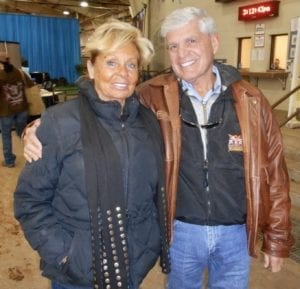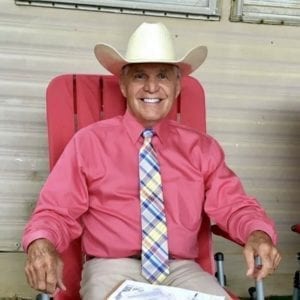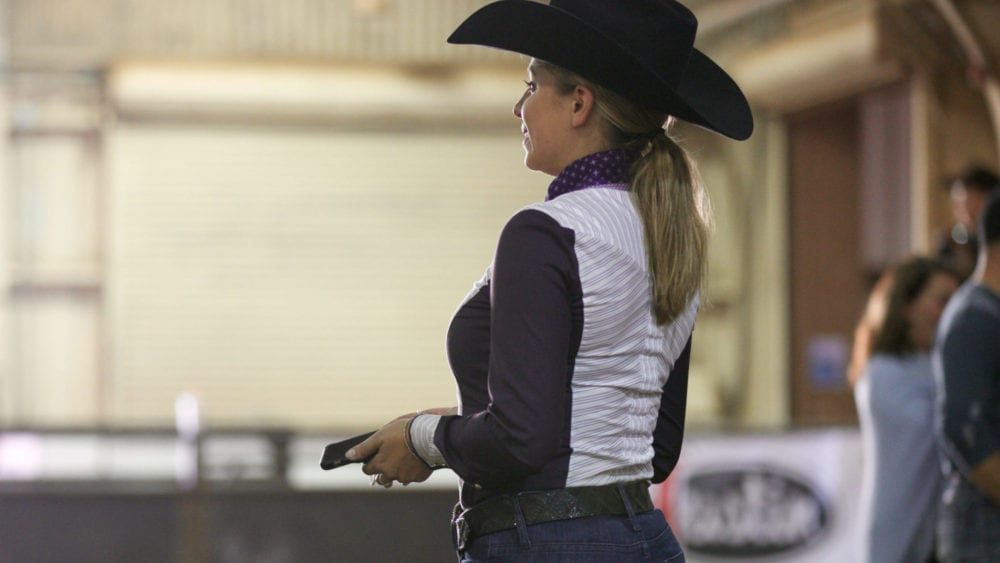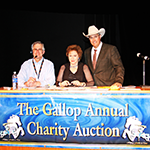We have all experienced it – the sweaty palms, the pit in your stomach, the shaky breath, the mixture of sweat, anticipation, and jittery excitement as you mentally prepare yourself for a class.
Some athletes can push their nerves aside, either due to years of experience in the show pen or perhaps, due to a natural ability to remain calm under pressure. These nerves often come with any sport and can be are hard to conquer, negatively impacting performance.
To understand the best ways to combat nerves and build confidence in and out of the show pen, GoHorseShow spoke with Dr. Nick Molinaro, a licensed psychologist in New Jersey with specialties in counseling, performance, and sports psychology. He has over 35 years of experience working with athletes, from high school to Olympic levels, and he has been featured in interviews on national television.
GoHorseShow also had the opportunity to speak with Dan and Darlene Trein of Trein Quarter Horses from Seville, Ohio. Dan and Darlene both have over 50 years of experience in the industry, and Dan is an AQHA Professional Horseman and judge.
Let’s find out what tips and advice they have for our fellow equestrians to calm themselves before a show.
Diaphragmatic Breathing
During times of stress and tension, heart rhythms become more erratic, causing disordered neural signals to travel from the heart to the brain, affecting cognitive functions, such as reason, decision-making, and memory.
In turn, diaphragmatic breathing, also known as square breathing, helps slow heart rate and stabilize blood pressure, creating coherence between your heart and brain rhythms, allowing your heart to slow and your mind to clear.
 Although a simple method for reducing stress, this coherence helps stop anxiety in its track while also releasing tension and allowing for clearer thinking.
Although a simple method for reducing stress, this coherence helps stop anxiety in its track while also releasing tension and allowing for clearer thinking.
Dr. Molinaro explains the exercise in this way: “Start by breathing in through your nose, inflating your diaphragm. Hold your breath, breathe out through your mouth while relaxing your shoulders, and do not inhale for four seconds. Then repeat.”
To be effective, it is vital that you breathe with your diaphragm and that each of those components has the same count of four seconds.
Grit and Adjusting Your Mindset
Equestrians often have an incredible amount of grit: passion, perseverance, and ideally, a low need for positive reinforcement.
However, no matter how great the passion may be, nerves and anxiety may still interfere. Grit can be achieved by understanding that you can improve and excel at each aspect of your sport and set positive and confident intentions.
Dr. Molinaro explains this idea using the following analogy. After reading a paragraph, do you sometimes forget what that paragraph was about, forcing you to go back and reread it? If you were to read that paragraph, but this time, make an extra effort to remember two crucial points, do you think you will read it differently?
Applying this to riding – if you intend on riding to the best of your ability every ride, by being very specific in your position, maneuvers, and execution, do you think you would ride differently? Most would say, yes! Intentions can be the driving force behind the behavior, and they can affect you more than you know. Tying it all together, Dr. Molinaro states, “Intention drives your attention, attention drives your decision-making, and decision-making drives your behavior.”
Proprioception and Practice
Proprioception is the felt experience without actually moving your body. In equestrian terms, it is similar to going through how you would execute the specifics of a ride in your mind before, or maybe after, the actual ride. Dr. Molinaro uses proprioception to coach his athletes to go through the motions of their ride outside of the ring, redirecting them to focus on the specific execution of the transition or maneuver causing the stress.
As a result, by focusing on the maneuver’s execution rather than the nerves themselves, you will be filling your brain pathways with more positive thoughts, preventing you from honing in on stress. Dr. Molinaro tells us, “If we shoot your attention away from failing in the the execution, you won’t be paying attention to fears, and you won’t be triggering those physical responses of anxiety.”
 Riders often become intimidated by the show pen, and it is no surprise as to why. As Darlene Trein puts it, “You walk into this big open pen, and it takes your breath away.” She further explains that this ‘stage fright’ is a hurdle that can be overcome. She advises her riders to simulate and prepare that stage by practicing in front of different people.
Riders often become intimidated by the show pen, and it is no surprise as to why. As Darlene Trein puts it, “You walk into this big open pen, and it takes your breath away.” She further explains that this ‘stage fright’ is a hurdle that can be overcome. She advises her riders to simulate and prepare that stage by practicing in front of different people.
Darlene further notes that she often sees her riders experience a decrease in performance when they are confronted with an unfamiliar spectator during a lesson. By making yourself accustomed in practice to what otherwise would be a strange situation, you are allowing yourself to be better prepared for that similar situation once you enter the show pen.
Dan Trein suggests that “it is the preparation, practice, and repetition that helps create the confidence.” This also ties back to proprioception and how fully understanding the execution of a maneuver and developing confidence in your skills will reap positive results.
Darlene and Dan also mention a slogan that they use: “Legendary hard work produces results.” It embodies the idea that “you cannot substitute hard work in any way to get to the top. If you think you worked hard today, work harder tomorrow, and it will pay off.”
Support System
Support systems are essential, and it is those people in your support system who can both lift you after a disappointing ride and encourage you to perform at your best. Regarding support systems, Dr. Molinaro says, “It is not the number of people, but it is more about a sense of unity, and team aspect.” He further advises that trainers make an effort to understand and connect with their riders since that alone can increase performance.
 Dan and Darlene agree, and Darlene tells us that, “I ask them all the time about their nerves, and I want them to be very honest and feel very comfortable.”
Dan and Darlene agree, and Darlene tells us that, “I ask them all the time about their nerves, and I want them to be very honest and feel very comfortable.”
Dan adds, “Our support system is very personal and very on-going. We approach training from a positive standpoint, and I think that our customers appreciate that, since they know that we are there to support them.”
It is a welcoming and positive atmosphere that can make the horse show experience more enjoyable and help quell the nerves and anxiety that can come with the sport.









